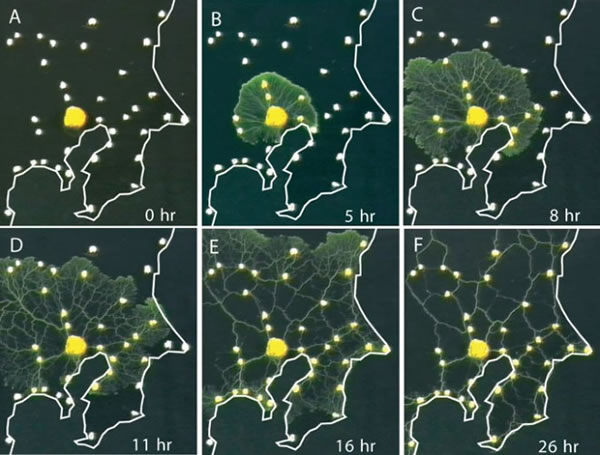How do you design an efficient rail system? Of course you can hire a
team of dedicated engineers ... or you can simply ask a slime mold:
When presented with oat flakes arranged in the pattern of Japanese
cities around Tokyo, brainless, single-celled slime molds construct
networks of nutrient-channeling tubes that are strikingly similar to
the layout of the Japanese rail system, researchers from Japan and England
report Jan. 22 in Science. A new model based on the simple rules of
the slime mold’s behavior may lead to the design of more efficient,
adaptable networks, the team contends.
Every day, the rail network around Tokyo has to meet the demands of
mass transport, ferrying millions of people between distant points quickly
and reliably, notes study coauthor Mark Fricker of the University of
Oxford. “In contrast, the slime mold has no central brain or indeed
any awareness of the overall problem it is trying to solve, but manages
to produce a structure with similar properties to the real rail network.”
More


No comments:
Post a Comment